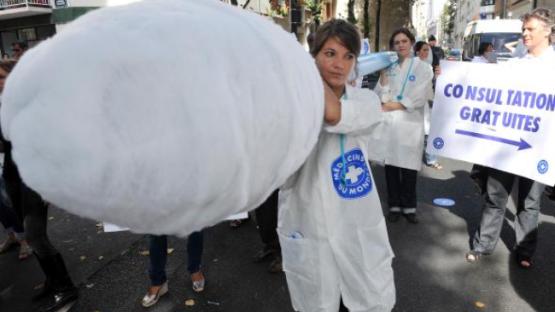There's No Good Reason for Spy Agencies to Snoop on Humanitarian Groups

The following article written by Carly Nyst, Privacy International's Legal Director, originially appeared on the Future Tense blog on Slate:
The news that the CIA is no longer using vaccination programs as a front for spying operations may come as a relief to many humanitarian workers. Yet their fears should not be completely assuaged, because the CIA’s activities—which undoubtedly threatened the safety of humanitarian workers and those they seek to help—pale in comparison to the surveillance that the NSA is conducting on humanitarian organizations across the globe.
In one of the least-discussed stories arising out of the materials leaked by Edward Snowden, in December 2013 the Guardian reported that the NSA and GCHQ, a British intelligence agency, are targeting humanitarian agencies such as UNICEF, the U.N. Development Program, and Medecins du Monde (Doctors of the World). Each of those organizations, named in leaked GCHQ documents, had been allocated a specific ID number in GCHQ’s “target knowledge base,” indicating they had been identified for targeted surveillance by the agency. The United Nations made no public response to the allegations. When Medecins du Monde wrote to GCHQ seeking an explanation, the intelligence service refused to answer any questions. The Guardian says that the documents “do not disclose the extent of any surveillance or for how long any collection took place.”
Yet given what we know about the NSA and GCHQ, it seems likely that the surveillance continues, and that it involves gathering data held in humanitarian databases and intercepting groups’ calls, e-mails and text messages. The vast array of issues addressed and programs run by humanitarian organizations mean that this could include data on ethnic communities fleeing genocide, women subjected to sexual violence, child soldiers, refugees from conflicts in Syria and Afghanistan, and impoverished areas suffering serious health problems.



